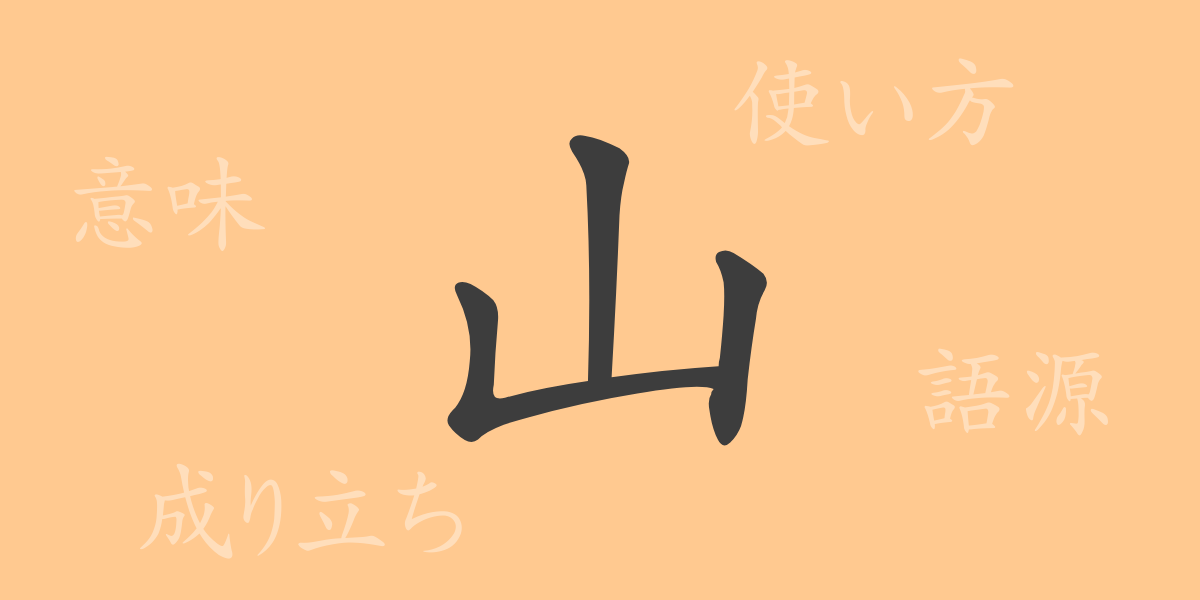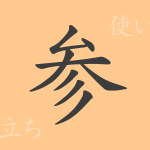In Japanese culture and language, kanji are essential elements. Among them, “山(やま)” is one of the fundamental kanji symbolizing nature, deeply rooted in the lives and thoughts of Japanese people. This article delves into the allure of the commonly used kanji “山(やま)”, exploring its origin, meaning and usage, readings and stroke count, as well as idioms and proverbs that include “山(やま)”.
Origin of 山(やま)
The kanji “山(やま)” traces its origins back to Chinese oracle bone inscriptions. The shape, resembling three peaks, represents a range of mountains, making it one of the most primitive expressions symbolizing natural landscapes. This form has undergone minimal changes over thousands of years, preserving its essence to this day.
Meaning and Usage of 山(やま)
“山(やま)” refers to natural topography, specifically high places or elevated terrain. It can also be used metaphorically to represent challenges or obstacles. Additionally, it holds spiritual significance in mountain worship, symbolizing sacred mountains or holy sites.
Readings, Stroke Count, and Radical of 山(やま)
The kanji “山(やま)” is characterized by its simple yet powerful form.
- Readings: The on’yomi (音読み) reading is “サン”, and the kun’yomi (訓読み) reading is “やま”.
- Stroke count: It has 3 strokes.
- Radical: The radical is 山部(やまへん).
Idioms, Phrases, and Proverbs Using 山(やま) and Their Meanings
There are numerous idioms, phrases, and proverbs in Japanese that include “山(やま)”. For instance, “山紫水明(さんしすいめい)” is a four-character idiom that describes beautiful natural scenery. The idiom “山をも動かす(やまをもうごかす)” signifies that strong will can overcome great difficulties, and the proverb “猿も木から落ちる(さるもきからおちる)” teaches that even experts can make mistakes.
Conclusion on 山(やま)
The kanji “山(やま)” plays a significant role in Japanese nature, culture, and language. Its simple yet multifaceted meaning resonates deeply with the Japanese people, appearing in many idioms and proverbs. The rich symbolism of mountains highlights the beauty of Japanese words, making “山(やま)” an essential kanji to understand when learning Japanese.

























